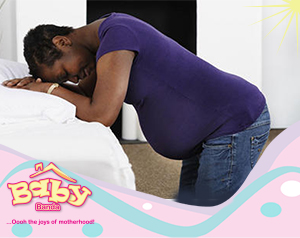Labour Warning Signs. These are Signs of pre-labour that indicate that the body is preparing and ready for delivery anytime and range from nausea, swelling and lightning among others.
See your health care provider immediately if you experience any of these Labour Warning Signs
- Sudden swelling of your hands or face.
- Blurry vision, or spots in front of your eyes.
- A bad headache that won’t go away.
- Feeling faint or dizzy often.
- Strong pain in your abdomen, with or without nausea.
- Bleeding from your vagina.
- It hurts or burns when you urinate.
- Chills or fever of more than 37.5ºC.
- Your baby moves less than normally.
- Your water breaks.
- You have a “gut” feeling that something is wrong.
Labour Warning Signs: Your labour may be starting if
- Contractions usually get stronger, longer and come closer together (contractions during childbirth are what is best known about labour). A contraction is simply the uterine muscle tightening and releasing, opening the cervix, the mouth of the uterus.
- Walking usually makes contractions stronger.
- Contractions are felt in the back and lower abdomen, not just in the uterus.
- Pink liquid (spotting) leaks from the vagina (bag of water breaks).
- You may have diarrhoea.
IF YOU’RE SENT HOME, WHEN SHOULD YOU GO BACK TO THE HOSPITAL?
First baby: Return to the hospital when your contractions are less than five minutes apart, are lasting about 60 seconds and are uncomfortable. If you are comfortable at home, stay there. This stage may last for several hours. Come back to the hospital if you aren’t comfortable any more.
If this is not your first baby: Return to the hospital when your contractions are five minutes apart, are lasting 45- 60 seconds and are uncomfortable. If your water breaks, come back to the hospital. If you had a fast labour the last time, come as soon as your contractions are regular or you aren’t comfortable any more.
What you might expect at the admission desk at the labour ward
- A nurse will ask you some questions about your pregnancy and what brings you to the hospital.
- She will check your health – blood pressure, and pulse.
- Your labour – possible vaginal examination.
- Your baby – position and heartbeat.
- Your caregiver will be notified and a decision will be made whether you will be admitted to the labour ward. If you are in early labour, they may suggest you go home while your labour progresses.
Coping Techniques during Labour
- Take a warm shower with water flowing on your belly or back, or a warm bath if your waters haven’t broken.
- Make sure you have help getting in and out of the tub. Use different positions while you are having a contraction – leaning against a wall or your support person, squatting, kneeling or on all fours … whatever helps.
- Have a massage on your lower back, including constant pressure during contractions, or try light stroking or circling on your belly.
- Between contractions, you may like someone to massage your hands, feet, neck or shoulders. You can use your hands, a rolling pin, or tennis balls. Some women enjoy massage oil.
- Experiment with different types of music and lighting.
- During early labour, try to relax and reserve your strength for the hours ahead.
- Drink plenty of fluids and eat snacks like toast, muffins and tea.
- Breathing & relaxation techniques.
- Remember, being nauseated in labour is unpleasant but normal.
- Tune in to how your baby is doing. If you are worried about the amount that your baby is moving, don’t hesitate to ring for the nurse or midwife.













